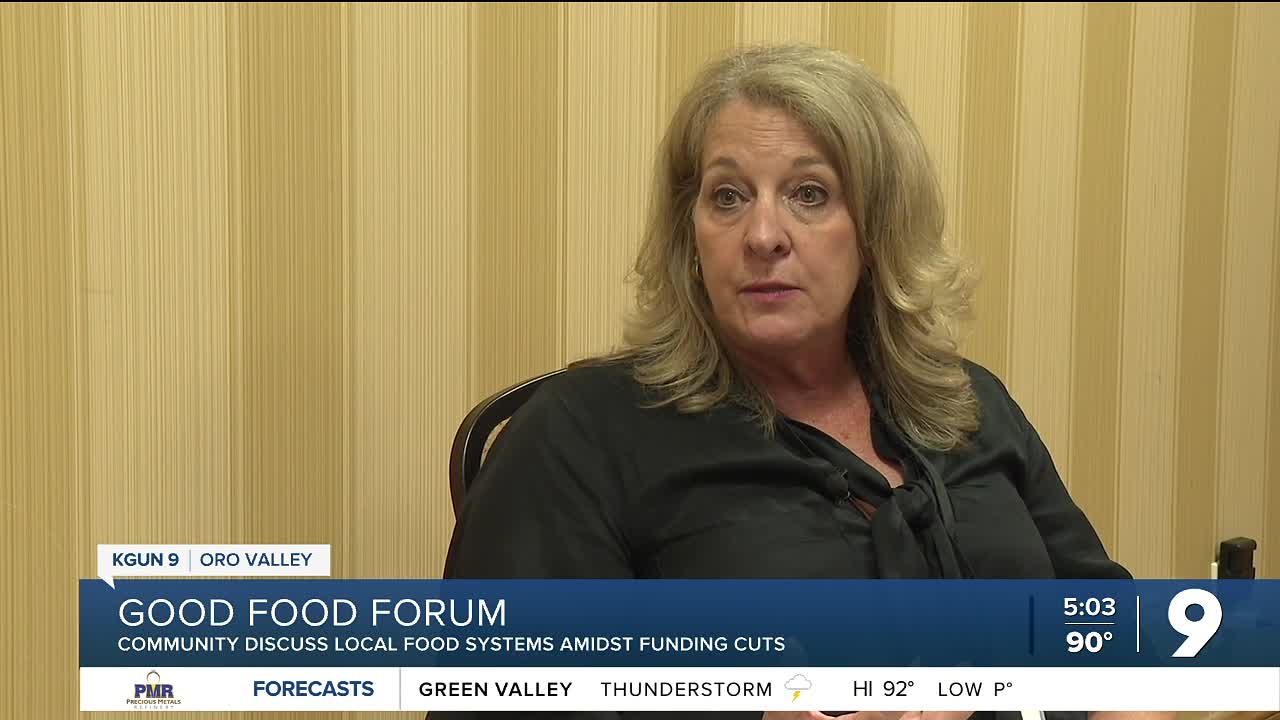ORO VALLEY, Ariz. (KGUN) — Southern Arizona farmers are facing new hurdles after federal budget cuts slashed millions from programs that once supported local agriculture.
The issue took center stage this week at the Good Food Forum, hosted by Local First Arizona at El Conquistador in Oro Valley.
The annual event brings together farmers, chefs, advocates and lenders to discuss how to strengthen Arizona’s food systems.
“If we want to look at the future of being resilient as a state, as a community, local and regional food systems need to be built up,” said Patty Emmert, Director of Resilient Food Systems for Local First Arizona. “That’s what’s going to diversify, to challenges that our producers are now navigating, like weather events.”
Emmert advocates for prioritizing native, weather-resistant foods in order to create a decentralized food system, which won’t be vulnerable to the types of supply chain issues seen in the wake of the COVID-19 pandemic.
“You’re not going to be able to do everything local,” Emmert said. “But if you know what’s growing around you, what’s in season and who your local producers are and buy that first, that would be fabulous.”
This year’s discussions carried an urgent tone after recent USDA budget reductions.
Among the most significant changes is the cancelling of the Local Food Purchase Assistance (LFPA) program. It has redirected over $1.1 billion since March 2025 to help local farmers sell to schools and food banks, is ending.
The Farm Service Agency (FSA), a key USDA branch that provides loans and disaster relief, is also facing a $372 million reduction in discretionary funding.
The cuts hit Local First Arizona, the host of the Good Food Forum. Emmert says the organization lost funding for the Southwest Regional Food Business Center, a USDA-backed program that aimed to help small and mid-sized farm and food businesses grow.
“We just received the notification about a month ago that they will not continue to fund them,” Emmert said. “We were two years into a five-year program and they were making tremendous progress.”
While the cuts sting, Emmert believes they’ve sparked creative solutions. “There’s a lot of innovation that comes out of it because you’re forced to think differently about how you’re going to do something,” she said.
That spirit of innovation was evident during the forum’s “Accessing Capital” panel, which featured lenders and investment organizations discussing new financial tools for farmers. Representatives included the USDA’s Farm Service Agency, AgWest Farm Credit and Potlikker Capital.
“We need to support all of us that are working in agriculture and not paint that broad brush of doom or gloom but how can we lift each other up,” said Jesika Harper, who serves as Vice President of AgWest Farm Credit’s Agvision program, which lends to newer, small farms. “And we need to share those success stories so people don’t feel like it’s hopeless, because it’s not.”
For Charissa Winston-Jones, a Phoenix resident preparing to launch her small farm this year, the panel was eye-opening.
“Farmers have a network, and if you tap into that network, then it helps you access those funds that you wouldn’t even know about,” she said.
Despite financial uncertainty, lenders say they remain committed to supporting local producers.
Harper framed the moment as an opportunity. “Over the course of history, there have been challenges and there’s bright spots, and this time is just one of those,” she said. “This is our opportunity to shine and show producers that we’re in this for the long run.”
More information on the Good Food Forum and resources for farmers can be found at the Good Food Find AZ website.
----
STAY IN TOUCH WITH US ANYTIME, ANYWHERE





